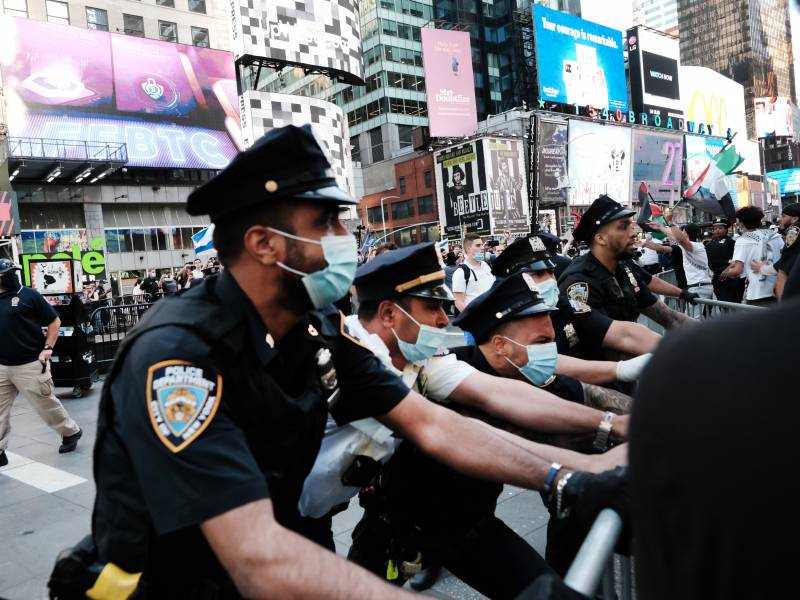In Skokie, Ill., it was a shattered window at a synagogue. In Bal Harbour, Florida, it was four men yelling “Die Jew” at a man in a skullcap, then threatening to rape his wife and daughter. And in midtown Manhattan, it was a group of people attacking a Jewish man in the middle of the street in broad daylight.
From California to New York, a wave of antisemitic attacks has broken out in communities over the last two weeks, leaving officials in law enforcement and government scrambling to confront the domestic ripple effects of the recent outbreak in violence between Israel and Hamas.
The violence and abhorrent rhetoric has come both in-person and online. The Anti-Defamation League said that in the week after the fighting erupted, it received 193 reports of possible antisemitic violence, up from 131 the week before. On Twitter, the group said, it found more than 17,000 tweets using variations of the phrase “Hitler was right” between May 7 and May 14.
“We are witnessing a dangerous and drastic surge in anti-Jewish hate,” the group’s CEO, Jonathan Greenblatt, said in a statement last week just ahead of the cease-fire announced between Israel and Hamas. He added: “To those who choose to indulge in age-old antisemitic tropes, exaggerated claims, and inflammatory rhetoric, it has consequences: attacks in real life on real people targeted for no other reason than they are Jewish. This is antisemitism, plain and simple. And it’s indisputably inexcusable in any context.”
A cease-fire on Thursday brought an end, however tenuous, to fighting that left more than 230 Palestinians dead in Gaza, and killed at least 12 people in Israel. Yet despite the break in violence, several of the nation’s most prominent Jewish organizations are warning that repercussions for Jews in the United States could be long-lasting.

9(MDAxOTAwOTE4MDEyMTkxMDAzNjczZDljZA004))
